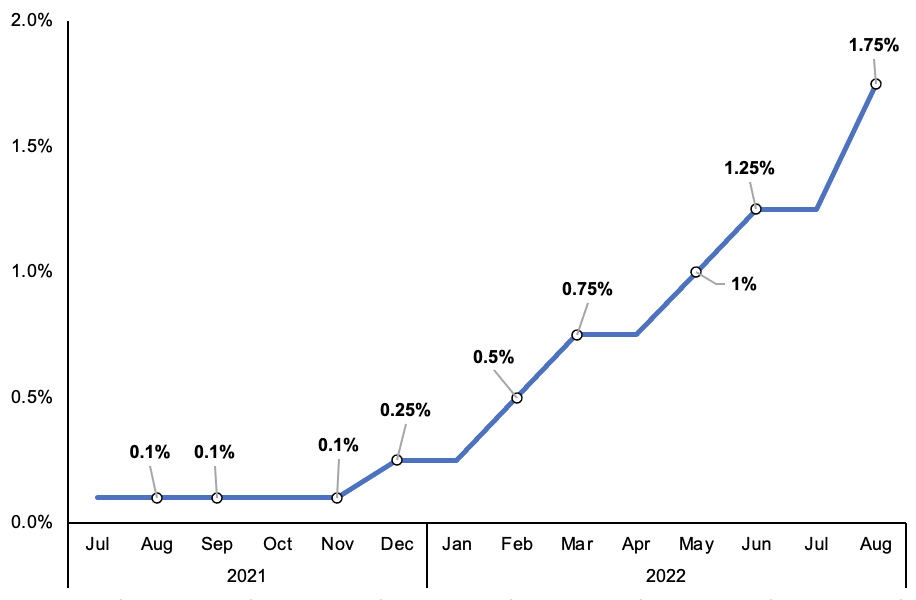Bank of England may launch biggest rate hike since 1989 if energy bill support fuels inflation

The Bank of England may have to launch the biggest rate hike since 1989 if the government injects huge sums of money into the economy to cope with the cost of living crisis, a Wall Street bank said today.
Borrowing costs could rise 75 basis points in November to deal with a historic inflation peak caused by cash transfers stimulating spending by shielding household finances from sky-high energy bills, according to Bank of America.
The warning illustrates the tough trade offs either Liz Truss or Rishi Sunak will face when shaping a cost of living support package after one of them enters Number 10 on 5 September.
“Providing stimulus mainly via transfers to households would leave in place a very high inflation peak” of 15 per cent, Bank of America said.
Governor Andrew Bailey and the rest of the monetary policy committee have already lifted rates six times in a row, including a 50 basis point hike, the biggest rise in over 25 years, earlier this month.
Inflation is running at 40-year high of 10.1 per cent.
Annual UK CPI inflation

Households are bracing for the energy watchdog to announce a potential 80 per cent upgrade to the bill cap tomorrow, sending the average annual bill to over £3,500.
Rising bills will tip millions of Brits into fuel poverty, prompting a string of economists today to warn the government is running out of time to save households and businesses from the cost of living crunch.
Some experts have argued sending people money to offset their high energy bills will push inflation higher by keeping demand in the economy high.
However, failing to offer more support could deal long-term damage to the economy by letting high energy prices erode Brits’ finances.
Calls to cap bills at their current level have gained momentum due to the huge surge in wholesale energy prices now likely meaning most households will struggle to pay bills without cutting back elsewhere.Gas prices climbed a fifth in just a week at the beginning of August, the Office for National Statistics said today.
Bank of America said if the government intervened in the market and held bills at their present level of around £1,900 for two years, “support would run to £125bn,” around double the cost of the furlough scheme.
Even under that scenario, the UK would still suffer “a modest recession,” the bank added.
Britain is set to tip into a 15-month long recession at the end of this year, according to Threadneedle Street.
Rich households would bag greater cash benefits compared to poorer households if the government kept prices artificially low.
Richer households spend a higher cash value on energy bills. However, poorer households spend a larger share of their income on energy bills, meaning they would receive greater relative advantages.
“A price cap has the advantages of clarity and preventing anyone from falling between the cracks of various support mechanism,” Bank of America added.
Rates are set to rise 50 basis points again in September and 25 basis points in December and February, Bank of England said. Including a 75 basis point rise, borrowing costs would climb to 3.5 per cent. Money markets think they will peak at four per cent next May.
UK interest rates

City A.M. has reached out to Truss and Sunak’s campaigns for comment.